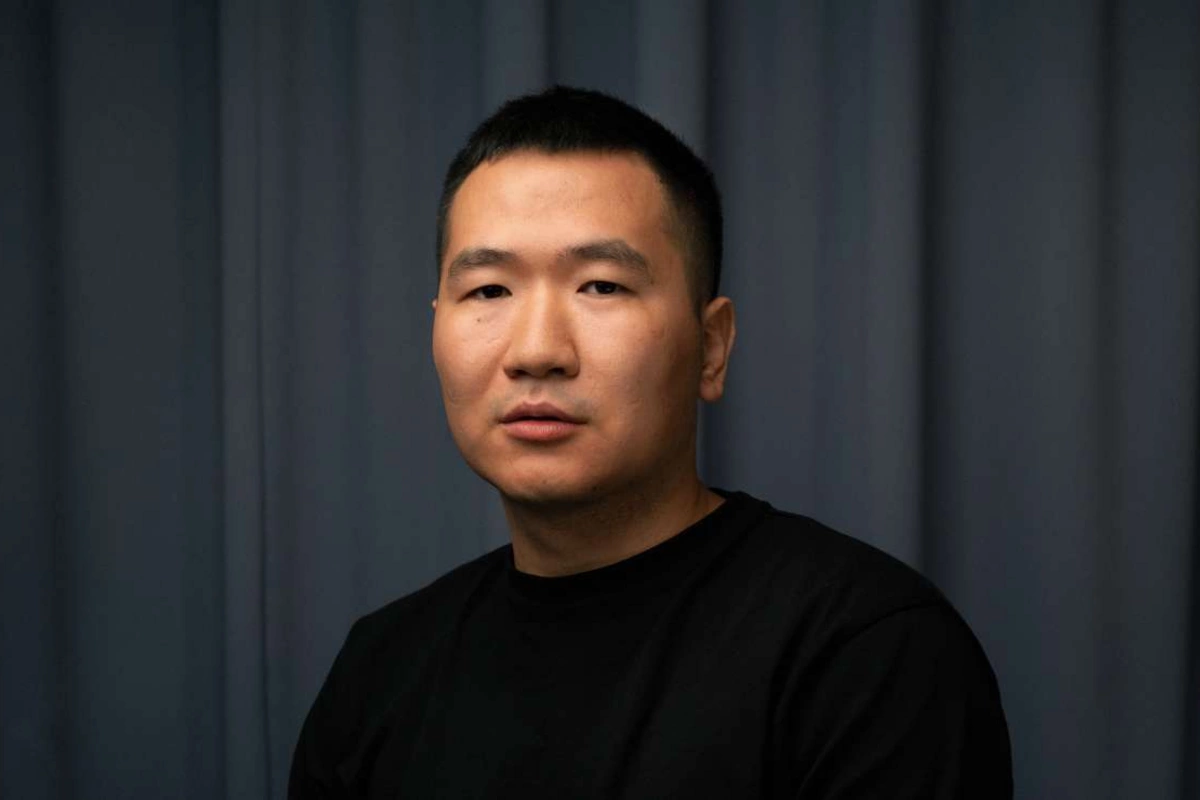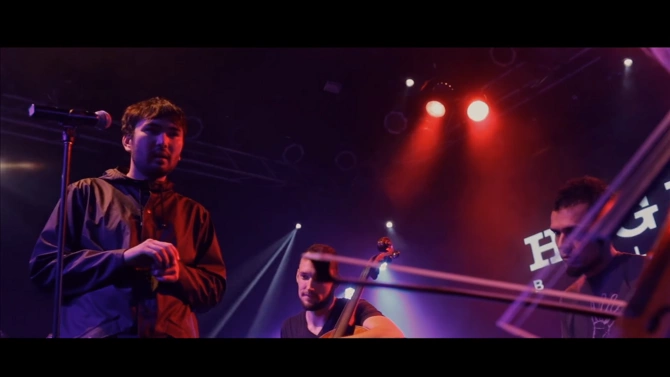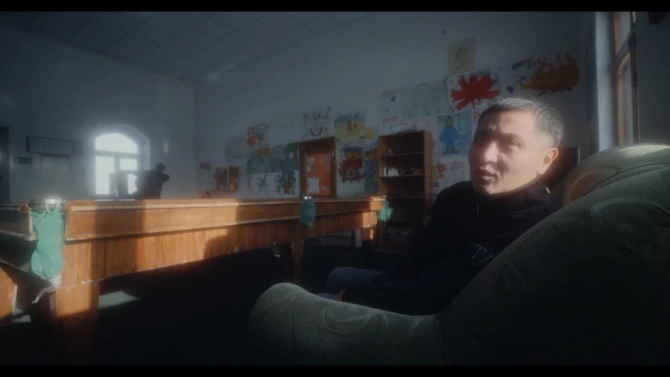
Leila Mekhdiyeva talks to Kazakhstan’s successful filmmaker about his professional path, his successes, and his creative plans for the future.
Image: courtesy photo
Every country has its heroes. They are usually people who are not afraid to say out loud what has remained unspoken, to reveal their true selves, and to wear their hearts on their sleeves. They become ‘thought leaders’ as they represent the ambitions and frustrations of a generation. Kazakhstan’s documentary filmmaker Kana Beisekeyev is one such hero. Though only 31 years old, he has already created 60 short- and long-form documentaries focusing both on social problems in his country and on self-identification amongst the Kazakh diaspora.
While studying journalism at the University of International Business in Almaty, Beisekeyev started work as a photojournalist at the locally-based news project Vox Populi. He credits Vox Populi and its founder Alisher Yelikbayev with teaching him everything about journalism. Nonetheless, he remembers, “I left because I knew I want something bigger. I was told that being a photographer in Kazakhstan means taking photos of weddings. I saw a bigger potential in my career. So, I went to New York to find an answer.”
He got accepted to the New York Film Academy (NYFA) and was able to afford the hefty fees thanks to a grant from the Saby Charitable Foundation. It was during this one-year photography program at NYFA that he realized that documentary-making would be his true vocation. This became especially clear when making his final work at NYFA – a documentary photo story about a Korean LGBTQ girl from Kazakhstan living in New York. In search of her identity, she started learning Kazakh and playing the dombra (a Kazakh national instrument). Later he returned to this story and made his documentary film “

Beisekeyev’s professional film career started almost by accident with “



Image: screen grab from "

However, Beisekeyev considers 2015’s “

This was to become a theme of Beisekeyev’s work, focusing on the unique stories and experiences of Kazakh immigrants in the US, from




For around five years Beisekeyev divided his time between New York and Almaty, but the pandemic put an end to this trans-Atlantic existence. He had already started to find that his American life forced him to work on projects that he wasn’t interested in. And he realized that he was “living in NYC just to be able to say ‘Oh, I live in NYC,’ and that wasn’t what he wanted. It became clear that to live and evolve, a full-time return to Kazakhstan might be his best move. Yet although Beisekeyev’s personal immigrant story was over, he continued making movies about other Kazakh immigrants and diasporas abroad. One such project is Qandastar.
“Once, I went to a bookstore in NYC and saw a book about Kazakhs in Mongolia,” he tells us. “When I saw those photos, I felt jealous, creatively speaking. I thought to myself, why is it that such an important topic was filmed by some American photographer and not me or somebody from Kazakhstan?” That’s how Beisekeyev’s idea to start the project that would one day become the Qandastar series was born.
Qandastar translates from Kazakh as ‘compatriots’ and is the word used officially to describe members of the Kazakh diaspora who returned to Kazakhstan after 1991, when the country gained its independence after the USSR’s dissolution. Decades of Soviet rule over the Kazakh steppes and the associated repressions had forced many Kazakhs into exile during the 20th century. Yet the Qandastar series showed how, even decades later, many in the Kazakh diaspora continue to speak the Kazakh language and to honour their national traditions or even augment them. For example, Aisholpan, the heroine of the






Filming the Qandastar documentaries also made Beisekeyev re-evaluate his identity. “I defined myself as a Kazakh when I was working on this series” he recalls. “We are all different. I, for example, am a Russian-speaking Kazakh raised in Almaty, Kazakhstan. They are Kazakhs from Turkey, Mongolia, and Europe. [Yet we] are not strangers to each other.”
Another of Beisekeyev’s important projects is

He is also involved with the Binocle series of social films addressing subjects that are not often openly discussed in Kazakhstani society. The latest movie from the series,


Image: screen grab from "

Last year he presented his film

Beisekeyev was essentially self-taught, though he believes he has a talent for storytelling that allows him to open up and examine his heroes from different angles. “Photography, journalism, and video are just tools used to tell the story,” he says.
Knowing the difficulties and realities of becoming a director, he now wants to share his knowledge and skills with the younger generation. Most of his team are 10 years his junior and are learning on the job. “When I understand that I have nothing to give them anymore, I let them go,” he says proudly, adding that many of his former assistants have gone on to become successful in their own right, notably making music videos or commercials. He is also keen to work with young creators, look for talent, and learn from others. “I don’t think that I am cooler than anyone. I learn from them as much as they learn from me.”
Besides Beisekeyev’s documentaries, he has been co-hosting his own podcast Zamandastar (Contemporaries) for over two years. He sees it as “a sitcom of two friends and their contemporaries” where like-minded creatives have a place to speak out on topics that interest them. The shows are recorded in either Russian or Kazakh, depending on each episode’s guest. “I want to connect these two worlds [Russian and Kazakh speakers in Kazakhstan]. It’s a crossover of different people, our contemporaries.” When asked if he would sell his podcast to make it into a show on TV, he states that he wouldn’t, as it has an “educational and enlightening mission.” To do this, it has to be accessible to everyone with the internet, not just those with access to certain television channels.
Two years ago, Beisekeyev became a father, and it has changed him and his world. “I realized that I want to be a good father. I used to search for myself, but since the birth of my son, I became more responsible. I need to raise a good person, and for that, I need to be a good person myself."
At the end of our interview, I ask him: “Would you want your son to follow in your footsteps?” “I think he will find his path himself, and I will be supporting him in all of his beginnings.”
Share on social media